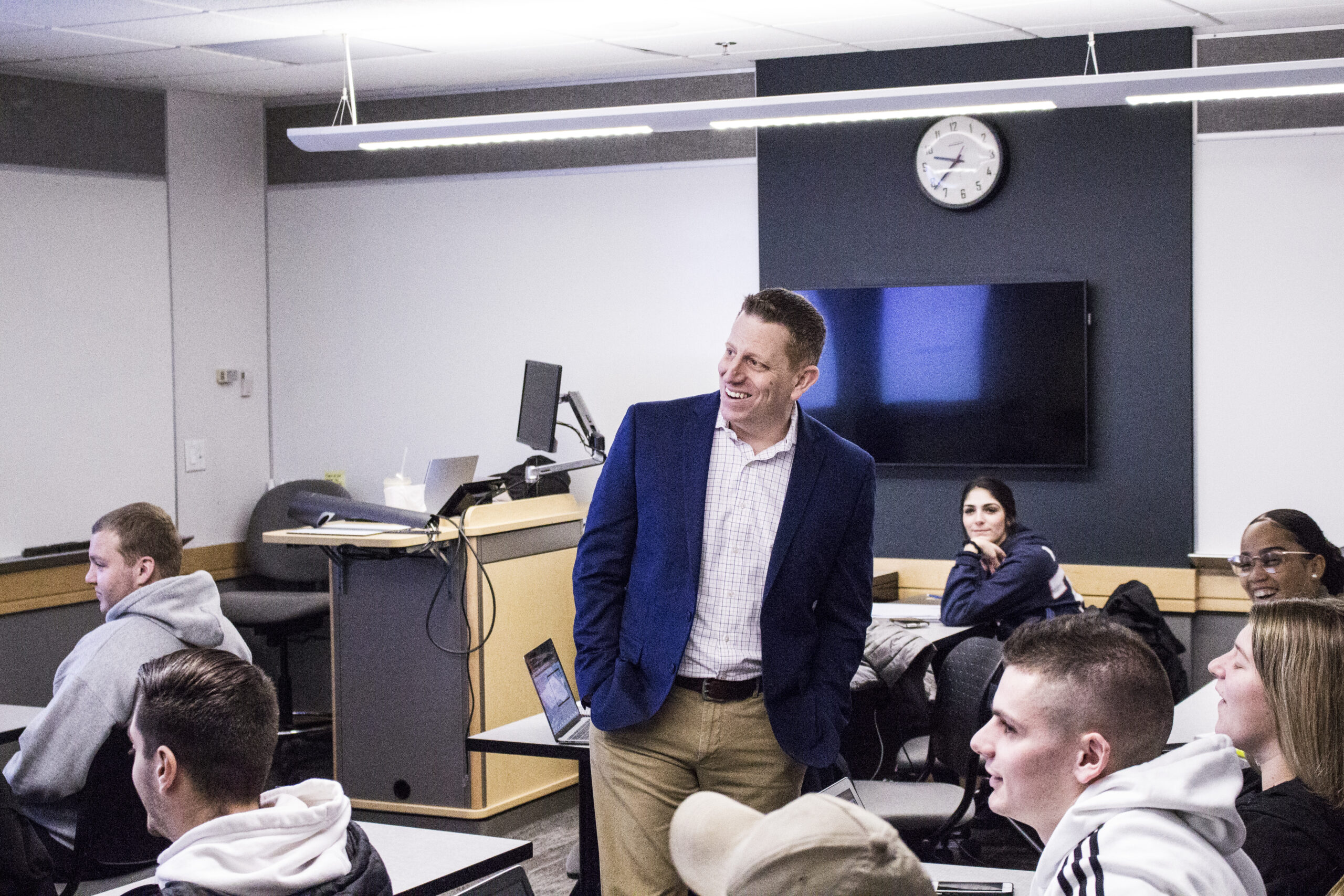Professor Michael David teaching his Ethics in Criminal Justice course. Photo by James McIntosh.
A new lecturer in the University of Rhode Island’s Criminology & Criminal Justice (CCJ) Program is dedicated to developing ethical knowledge and experience to challenge common thought processes.
Michael David previously worked for over 20 years at the East Providence Police Department, where he retired as a captain. He has also worked in juvenile corrections and on a Rhode Island state grant trying to implement criminal justice reform in the state. All of his experiences have offered him a unique perspective towards his teaching approach.
David instructs two classes: Criminal Justice Systems and Ethics in Criminal Justice. He has been a full-time lecturer for URI’s CCJ Program since the fall 2019 and will be staying until the end of this spring semester.
“It is my job to teach the students that the academic work they do here does apply to the real world; it’s not separate worlds, there is a connection,” David said. “If we’re studying a subject matter, specifically an element of the system that is difficult to understand or to an ethical dilemma that I want students to be put into the shoes of someone making that decision, I will share personal experiences if it’s appropriate to the learning.”
David said that he believes the strengths of the department come from having professors and lecturers who have a variety of backgrounds and experiences.
“[My experience] happens to be from a practical point perspective but others have different experiences, and the strengths of the program are in the myriad of the experiences that the faculty bring,” David said.
The importance of educating students on ethical decision making was referenced by David when he explained his areas of expertise and what different perspectives he brought to the table as a lecturer in the CCJ major.
“We are trying to educate students on ethical decision making in criminal justice and one way that they have done that is to bring in someone with practical experience: someone that has been experienced in training, disciplining and hiring officers and writing correctional policy drafts and actually dealing with the ethical decision making in the real world,” David said.
He enjoys teaching the theoretical basis behind CCJ in the classroom so that students can understand how decisions are made, not just in theory, but also in practice, whether that be in the streets, courtrooms, jails or prisons.
According to David, working with students that have a passion for ethical criminal justice reform often results in new ideas he had never previously thought of. This is something he loves about teaching at URI.
Coming into teaching, David said that his mission was to help students learn the importance of decisions made at the individual level in the criminal justice system.
“The students here have a strong desire to not only work in the system but make changes where it’s needed, to understand what’s going on in the system, more so than just learn the facts,” David said. “They really want to understand what drives the decision making in the system and that’s been a breath of fresh air.”
Professor Natalie Pifer works in close proximity with David and has enjoyed having him around for the past two semesters.
“Michael has been a wonderful addition to the CCJ program this year,” Pifer said. “I think he brings a unique perspective to teaching by combining insights from his time working in law enforcement with the advanced social science knowledge he is gaining through his pursuit of a Ph.D. in Criminal Justice. My office is right next door to his in Chafee and, based on the conversations I sometimes overhear, it seems like our students are equally engaged by him.”





